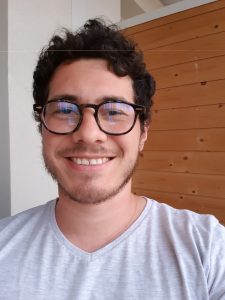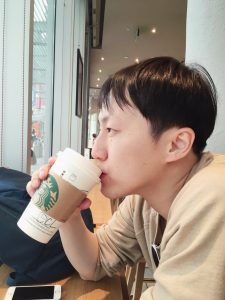Events in December 2019
-
PhD Seminars III
PhD Seminars III
–
December 2, 2019Talk 1
Imane Fouad (INDES)
Title
Missed by filter lists: detection of third-party trackers
Abstract
The Web has become an essential part of our lives: billions are using Web applications on a daily basis and while doing so, are
placing digital traces on millions of websites. Such traces allow advertising companies to continuously profit from collecting a vast amount of data associated to the users. Web users have become more and more aware of the impact of the violation of their privacy on the web, and at the same time the Web tracking technologies evolve permanently. In our study, we collect and analyses Web tracking techniques that are based on embedded third-party Web beacons. We use the collected dataset of third-party requests as a ground truth to define a methodology to detect and classify tracking behaviors in the Web.Talk 2
Speaker
Title
Technology transfer
Abstract
This presentation will explain what technology transfer is. What are its boundaries, what is its purpose?
Technology transfer, also called transfer of technology (TOT), is the process of transferring (disseminating) technology from the person or organization that owns or holds it to another person or organization.
We shall present the different types of technology transfer and their consequences. -
PhD Seminars IV
PhD Seminars IV
–
December 16, 2019Talk 1
Yuri Rodrigues (MATHNEURO)
Title
A stochastic model of postsynaptic plasticity based on dendritic spine Ca2+ downstream proteins
Abstract
Dendritic spines are the hub in neuron-to-neuron excitatory communication and its efficiency can be changed by a timely organized spike sequence inducing plasticity changes in synapses. Preceding such changes a calcium influx is required to trigger a cascade of enzymatic events which ultimately will lead to an increase or decrease of synaptic efficiency. Still, it is not well understood how dendritic spines housing a noisy environment subject to stochasticity from multiple sources can translate a firing sequence into any specific transmission adjustments. Moreover, plasticity experimentation literature points out that not only the stochastic nature of plasticity gives an unclear comparison but also control parameters vastly differ among laboratories, for instance, temperature, brain region, the composition of artificial cerebrospinal fluid, specimen age. Trying to sort this out, we developed a mechanistic model to simulate the experimental conditions in which the calcium cascade in dendritic spines creates the required enzymatic pattern to induce plasticity observed in experiments.
Talk 2
Speaker
Title
Generative Adversarial Networks(GANs) for human video generation
Abstract
Generative Adversarial Networks (GANs) have been widely used in different tasks in computer vision, e.g., face image generation, super-resolution and colorization. However, generating realistic videos, especially videos related to human, have not been widely explored yet. In this talk, we will discuss our novel design of GANs to generate human videos, including facial expressions and human actions, which outperforms state-of-the-art methods based on all qualitative evaluation metrics and achieves the best visual quality.









